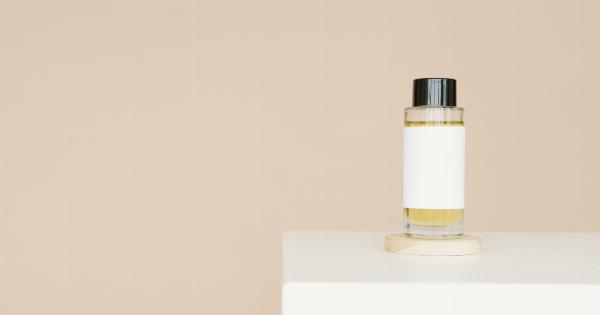Essential oils have been used for centuries to promote healthy and glowing skin. These natural extracts possess numerous benefits and can be incorporated into your skincare routine to address various skin concerns.
Whether you have dry, oily, acne-prone, or aging skin, essential oils can provide the nourishment and rejuvenation your skin needs. In this ultimate guide, we will explore the best essential oils for different skin types and conditions, along with their application methods and potential side effects.
1. Essential Oils for Dry Skin
If you struggle with dry skin, essential oils can help restore moisture and hydration. Some of the best essential oils for dry skin include:.
- Lavender essential oil
- Geranium essential oil
- Sandalwood essential oil
- Chamomile essential oil
Combine a few drops of your chosen essential oil with a carrier oil, such as jojoba or almond oil, and gently massage it onto your skin. These oils help nourish and soothe dryness, leaving your skin soft and supple.
2. Essential Oils for Oily Skin
If you have oily skin, essential oils can help regulate sebum production and minimize the appearance of large pores. The following essential oils work effectively for oily skin:.
- Tea tree essential oil
- Lemon essential oil
- Clary sage essential oil
- Juniper berry essential oil
To use these oils, mix a few drops with a carrier oil and apply the mixture to your skin. These oils possess natural astringent properties that can help control oiliness and promote a balanced complexion.
3. Essential Oils for Acne-Prone Skin
Acne-prone skin requires special attention, and essential oils can be a valuable addition to your acne-fighting routine. The following essential oils have antimicrobial and anti-inflammatory properties that can help combat acne:.
- Tea tree essential oil
- Lavender essential oil
- Rosemary essential oil
- Clary sage essential oil
You can apply a drop of these oils directly to individual acne spots or dilute them with a carrier oil for a larger application. Remember to perform a patch test first to ensure you don’t have any adverse reactions.
4. Essential Oils for Aging Skin
As we age, our skin loses elasticity and firmness. Essential oils with anti-aging properties can help minimize the appearance of wrinkles and fine lines. Consider the following essential oils for aging skin:.
- Frankincense essential oil
- Rosehip essential oil
- Pomegranate seed essential oil
- Neroli essential oil
Combine a few drops of your chosen essential oil with a carrier oil and gently massage it onto your face and neck. These oils stimulate collagen production, improving skin elasticity and promoting a more youthful appearance.
5. Essential Oil Application Methods
Now that we have explored various essential oils for different skin types, let’s discuss the different application methods:.
- Inhalation: Add a few drops of essential oil to a diffuser or inhale the aroma directly from the bottle. This is an excellent method for relaxation and mood enhancement.
- Topical Application: Dilute essential oils with a carrier oil and apply them directly to the skin. Always perform a patch test and avoid using undiluted essential oils.
- Bath: Add a few drops of essential oil to your bathwater for a luxurious and aromatic bathing experience. Ensure the oil is properly mixed before entering the tub.
- Steam Facial: Create a steam facial by adding a few drops of essential oil to a bowl of hot water. Place your face near the steam, cover your head with a towel, and allow the steam to open your pores.
6. Potential Side Effects of Essential Oils
While essential oils offer numerous benefits, it’s essential to be aware of potential side effects. Some oils may cause skin irritation, especially if applied undiluted. Always perform a patch test before using any new essential oil.
Additionally, pregnant women, individuals with allergies, and those with sensitive skin should exercise caution and consult with a healthcare professional before incorporating essential oils into their skincare routine.
7. Conclusion
Essential oils are a natural and effective way to treat various skin concerns. Whether you have dry, oily, acne-prone, or aging skin, there is an essential oil that can provide the nourishment and care your skin needs.
By understanding your skin type and choosing the appropriate essential oils, you can achieve a healthy and radiant complexion.































